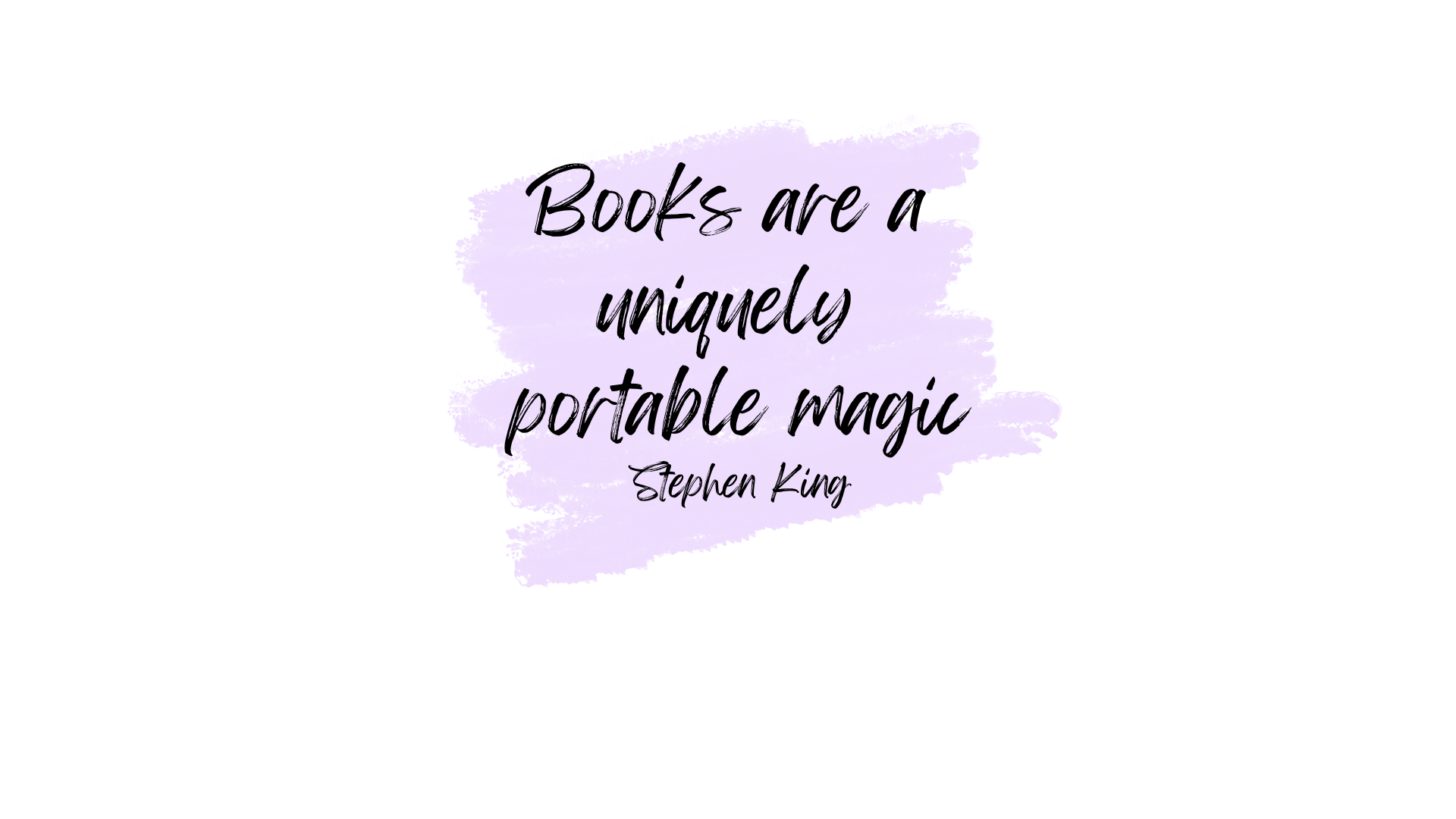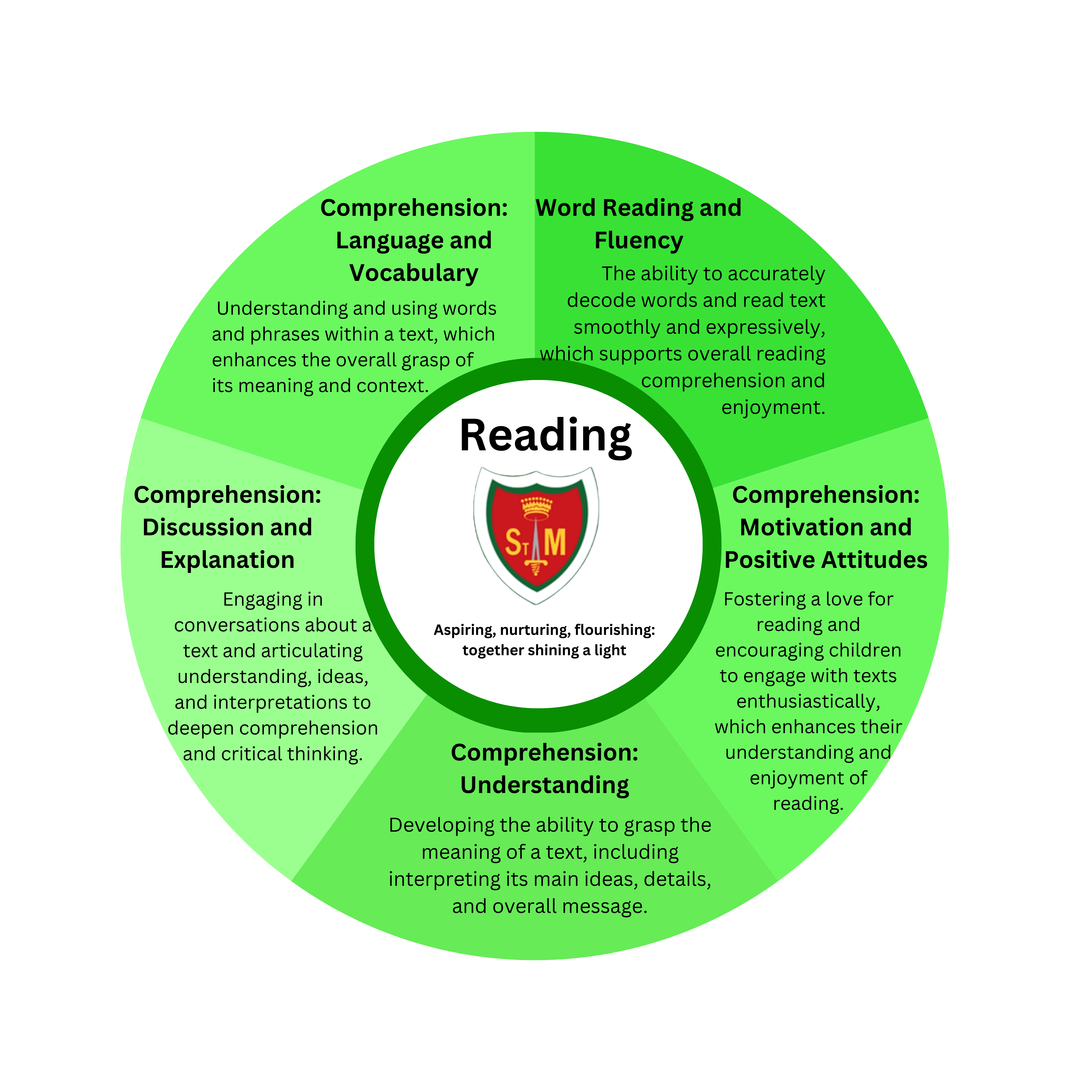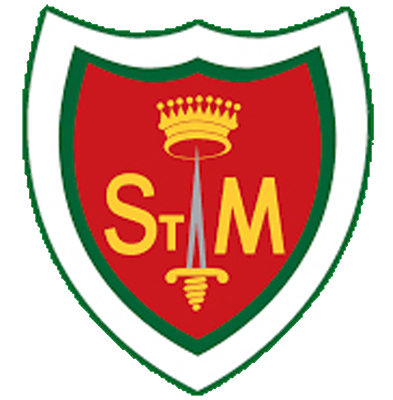Reading

Reading
Intent
At St. Mary’s Primary School, we value reading as a key life skill and are dedicated to enabling our pupils to become lifelong readers. We aim to provide rich and diverse reading opportunities that promote fluency, comprehension, and critical thinking. By nurturing a positive reading culture and engaging children in various genres and perspectives, we strive to expand their knowledge, empathy, and imagination, preparing them for lifelong learning and success. By the time children leave St. Mary’s, they are competent readers who can recommend books to their peers, have a thirst for reading a range of genres including poetry, and participate in discussions about books, including evaluating an author’s use of language and the impact this can have on the reader.
The reading curriculum is driven by engaging texts which allow children to learn key skills in the following areas:
- Word reading and fluency
- Comprehension:
- Motivation and positive attitudes
- Understanding
- Discussion and explanation
- Language and Vocabulary
Within these strands, specific skills are taught in:
- Vocabulary
- Retrieving
- Summarising
- Inferring
- Predicting
- Analysing
- Authorial Intent
- Comparing
- Reading behaviours and fluency
- Speaking and listening
We believe reading is imperative for academic success and so to ensure we have a holistic approach to the teaching of reading, we implement the following:
· Children take part in daily Guided Reading lessons, where children are exposed to a range of different texts and can demonstrate their understanding and thinking behind these.
· All children from Reception to Year 6 take home and reading book and this is changed regularly. In KS1, children take home two books each week and these are changed weekly.
· Children who are not yet at the expected standard, will work through our school reading scheme – these are levelled books which match the children’s current reading age. We expect family at home to read these books with their child daily and make comments in their child’s reading record.
· Each classroom has a designated reading space and has a selection of books in their classroom, including texts which are directly linked with the class topic. This is a comfortable place for children to read at any opportunity throughout the day. This offers opportunities for the children to apply their reading skills across the curriculum.
· Children are read to each day by an adult. This may be from the class reader which has been chosen to be enjoyed and may link to the current class topic.
· Children have regular opportunities to visit our school library and choose books to take home with them. These library sessions provide children with chances to discover new books, authors and styles. Adults and children share stories together during these sessions.
Reading for pleasure is a valued and integral part of the school experience. We aim to create a culture that celebrates books and storytelling, offering children a diverse and rich selection of texts that cater to their interests and imaginations. By providing engaging reading opportunities, comfortable reading spaces, and regular access to a wide range of literature, we seek to inspire our children to read widely and enthusiastically.

Implementation
Early Reading Scheme
At St Mary's we promote a 'phonics first' approach and in both our guided reading sessions at school and in the books children take home, texts are very closely matched to a child's current phonics knowledge so that every child can experience real success in their reading. In these crucial early stages of reading we use books from Ransom Reading Stars Phonics, which are supplemented with books from a range of publishers. All our books have been carefully matched to ensure they follow the Unlocking Letters and Sounds progression.
Once children progress beyond decodable texts, they move onto our further levelled books (Purple, Gold, White, Lime) so that they can continue to progress in their decoding, fluency and comprehension skills to become avid, expert readers. Following this they will move onto our Reading Passports.
Reading Passports
As a school, we view reading for pleasure as crucial to developing a life-long love for reading and learning, as it underpins essential learning behaviours. As a result, we want to ensure all children at St. Mary's have access to a breadth of high-quality and enjoyable texts, which are updated throughout the school. With this in mind, we have developed 'Reading Passports' for Key Stage 2. Each year group in Key Stage 2 has a 'Passport' of books which have been chosen to sit within age-related expectations, linked to the curriculum and in areas of interest for the children.
How can I support my child?
At St. Mary’s Primary School, we value reading as a key life skill and are dedicated to enabling our pupils to become lifelong readers. We believe reading is imperative for future success. By the time children leave St. Mary’s, we aim for them to be competent readers who can recommend books to their peers, have a thirst for reading a range of genres including poetry, and participate in discussions about books, including evaluating an author’s use of language and the impact this can have on the reader. Children are encouraged to develop their own love of genres and authors and to review their books objectively. This enhances a deep love of literature across a range of genres, cultures and styles.
How to choose books you'll love
Wondering which book to read? Take a look at these top tips for choosing a book! A fun animation suitable for primary-aged children, created by the National Literacy Trust’s Young Readers Programme.
